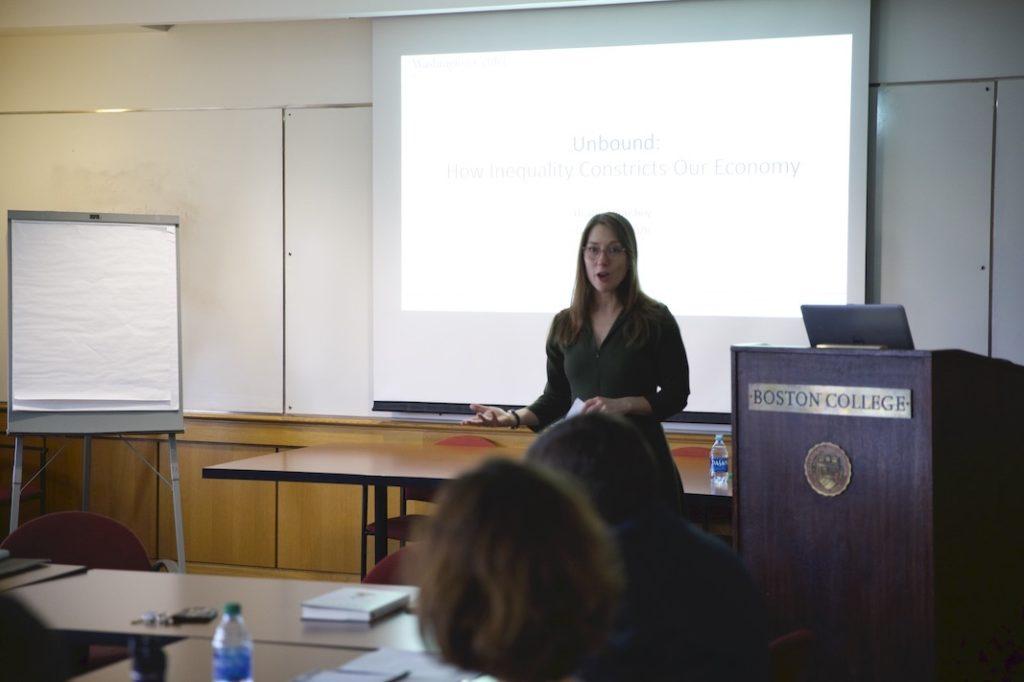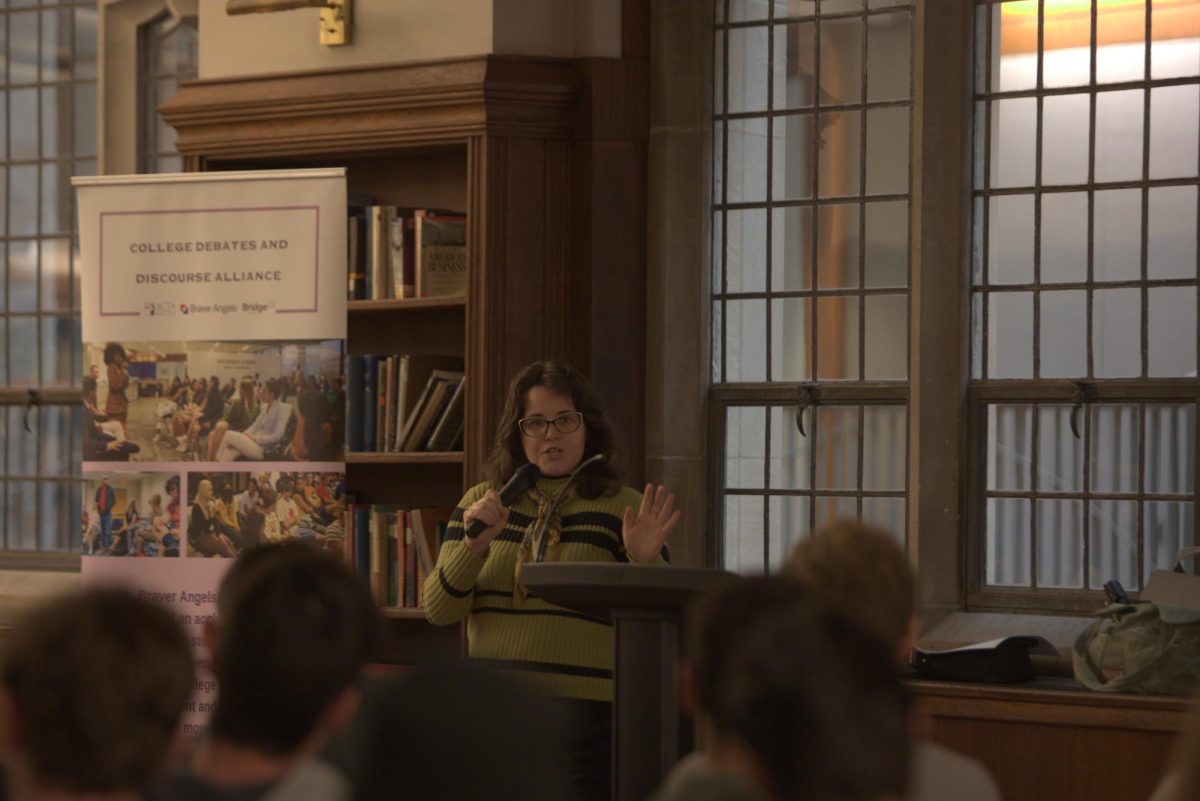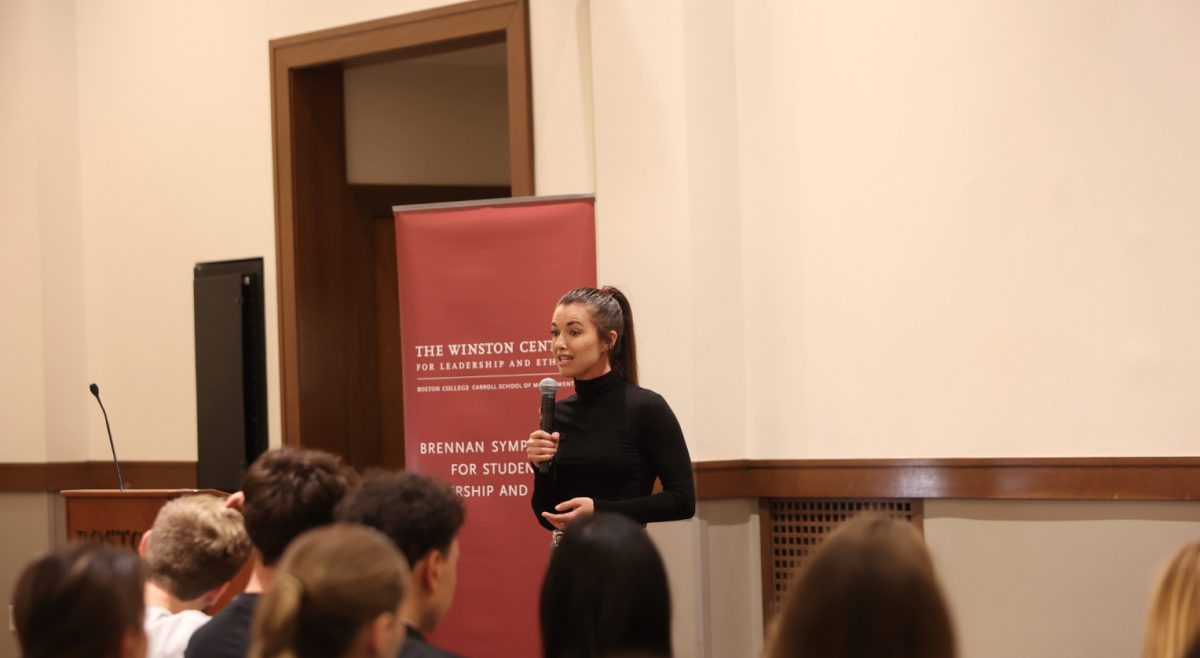Heather Boushey, president and CEO of the Washington Center for Equitable Growth, discussed her new book Unbound: How Inequality Constricts Our Economy and What We Can Do About It and the work her think tank has recently been pursuing at an event hosted by the School of Social Work on Thursday.
Boushey began her talk by discussing the Washington Center for Equitable Growth and one of its recent projects, which disproved the widely held belief that what is good for the economy is bad for people, and vice versa. This topic, which she said she is very passionate about, is also a major theme in her latest book.
“There is this inherent tradeoff between, on one hand, what’s good for the economy, and on the other hand, what’s good for people and families,” Boushey said. “When you start looking at the new research that is coming out of economics, you actually see a very different story emerging.”
In Boushey’s opinion, economics is undergoing a major turning point, as modern data has allowed economists to analyze aspects of the economy that they previously were unable to. This has been made possible by new technology and methods over the last 40 years, according to Boushey.
Boushey’s new book is a synthesis of the information her think tank has gathered over its first six years. Though the book does not introduce any new data, it presents existing modern data to understand our current problems with inequality and the ways it negatively affects the economy.
In essence, Boushey’s think tank found that in order to have an economy that acts in accordance with the way people are taught the markets behave, there must be interventions that constrict and balance against inequality. Understanding the economy by examining it in its current condition is misleading because it is being distorted by high economic inequality, according to Boushey.
“There’s constraints on inequality at the top so that some cannot amass a great deal of economic power that translates into social and political power. And so long as there are countervailing forces across the economy, that can be a counterweight to concentrated economic power.”
In order to support her general finding, Boushey provided three ways inequality inhibits economic growth. First, economic inequality limits the opportunities for people who are not already at the top. As a result, society is deprived of the benefits people who are not beginning at the top would offer, and the wealthy become wealthier, while the poor see no economic growth, according to Boushey.
The second way in which inequality hinders economic growth, Boushey argued, is that the mechanisms in place to manage the markets are ineffective in handling economic inequality. As a result, these mechanisms, such as the political systems in place, are not serving their needs.
“Inequality is subverting the institutions that manage the market,” Boushey said. “It’s making our political system ineffective, and it is making our markets dysfunctional … There is now a rich body of research that is coming out of political science that is showing that the economic inequality that we have is translating into a lack [of] political power.”
Boushey’s third example was that economic inequality distorts demand due to its effect on both consumption and investment. In terms of consumption, if the economy is heavily concentrated toward the rich, the poor cannot be proactive consumers and support businesses. Additionally, companies with few competitors have little incentive to make improvements.
“A firm that doesn’t have a lot of competitors may not need to take its profits and reinvest them,” she said. “Who’s going take their market share? They don’t need to do better.”
In order to remedy the problem of economic inequality, all three of these factors must be addressed, Boushey explained, but the subversion of mechanisms must be addressed first, because any attempt by the government to fix the other two problems is rendered useless if the political process has no hold on the situation.
“You can spend all the time in the world trying to remove obstructions for some… but so long as you have this market concentration and this chokehold on our political process you have to deal with the subversions,” she said. “You have to think about rethinking competitive markets, and you have to think about how you’re gonna tax at the top.”
Boushey closed her talk by previewing the recent project her team at the Washington Center for Equitable Growth has been conducting, in which it collaborates with economists to express economic data released quarterly by the Bureau of Economic Analysis, such as GDP, in terms of which economic groups are receiving the benefits or losses. A main goal for this project is to integrate the differing views of economists— those who focus on monetary policy and GDP and those whose attention centers around concepts like unemployment rates and family income.
“The data for these two worlds is literally released on different days and we don’t have that conversation at once,” she said. “This [project] makes us have this conversation on the same day, at the same time.”
Featured Image by Bridget Clark / Heights Staff













